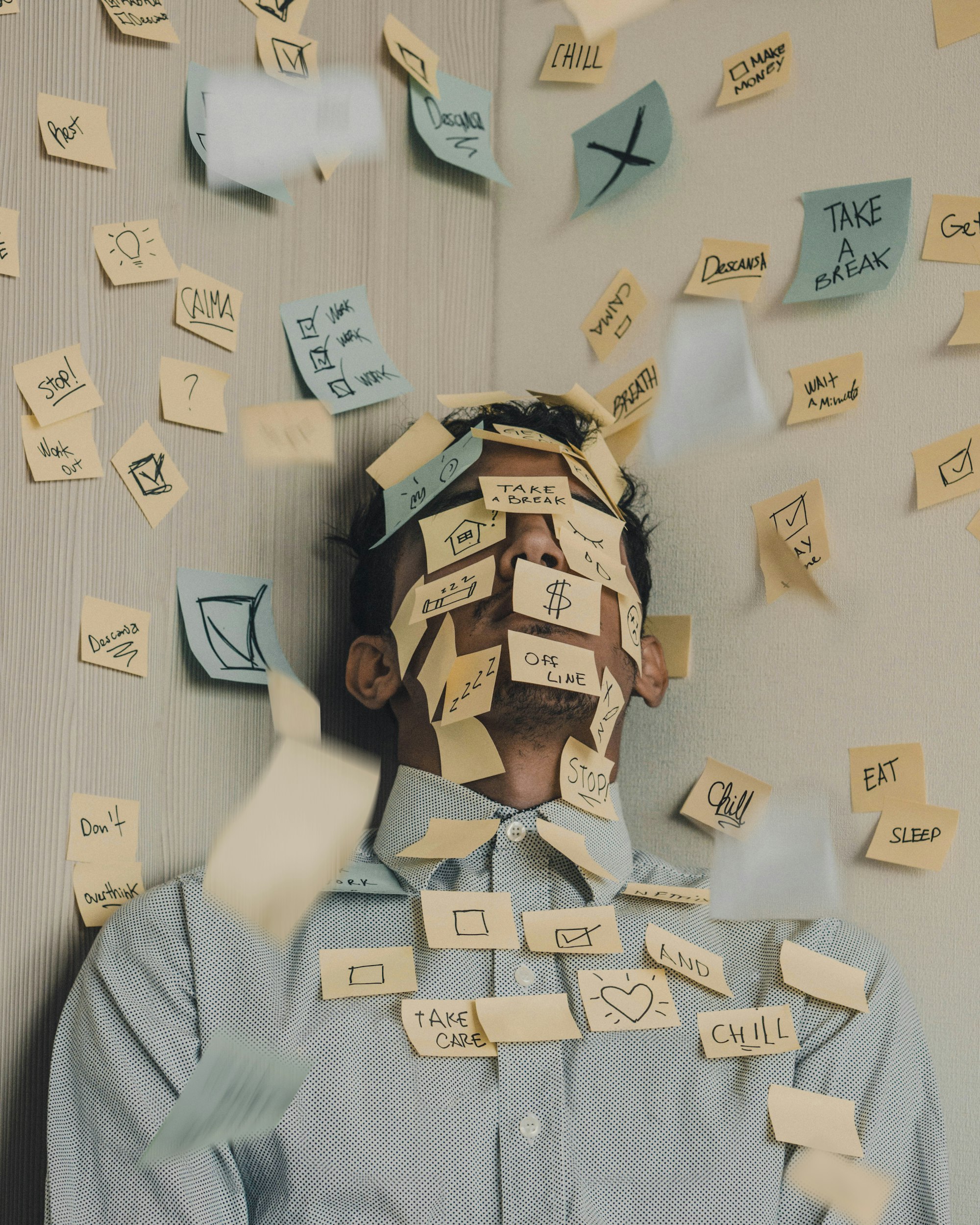Cleanliness is Next to Stresslessness
It a no brainer for some and a surprise for others, but stress is highly associated with clutter. Living with depression can increase the risk of clutter. Studies show that the more clutter around you, the more stress you'll experience. Discover how to begin eliminating stress from your life.

It may seem like a no brainer for some and a surprise for others, but stress is highly associated with clutter. While living with depression can often increase the risk of clutter, studies have shown that the more clutter you are surround in, the more stressful an experience you will have. Living and working in a clean environment is a surefire way to begin eliminating stress from your life. Whether it’s just tidying up more regularly or doing a major overhaul of your clutter, the moral of the story is the same. Less mess equals less stress.
It can be frustrating for many to keep up on household tasks. This is especially true for people who live with others and have varying standards of cleanliness. A good way to address this issue is to assign those you live with specific tasks that you can work on so that the stress of cleaning up after others is eliminated as well as the messes themselves.
If you find that you are struggling with people who don’t want to help you keep your environment clean, sometimes the best way to handle it is to take responsibility for yourself and yourself only. Clean your own dishes, do your own laundry, and claim a space for yourself that you can easily maintain without the interference of others. This will help you to wash your hands of a problem that can sometimes seem to have no solution.
If you find it difficult to keep up on household duties and maintaining a clutter free environment, don’t worry. You’re not alone. You could very easily begin to improve. Take small steps at first in putting a system in place that you can maintain. If things are bad, start one room at a time until completion and have a plan ready to keep it maintained. Set rules for yourself using charts and planners and alarm reminders so you know that on a certain day you will be dusting and doing regular household upkeep.
Once everything is deep cleaned, then maintaining that standard can be as little as ten minutes per day if you break it up into a routine. Then once a month you can begin to do a deep clean so it gets easier and easier to stay on top of the clutter.
Everything can benefit from having a good system in place. This can be especially true for motivated and busy people. If you are having a hard time juggling your responsibilities and tend to put cleaning at the bottom of the list, you’re not alone. However, it would significantly reduce the stress that you are experiencing if you move cleaning up on your list of priorities and develop a regular schedule for your daily routine that includes making sure that the spaces where you spend the most time are as clean as possible!
How to Use Routines to Clear Your Mind and Reduce Stress
Routines are highly underrated. Most people who are portrayed in the media as having a good work ethic and who have high standards for their lives and environments are often teased as being neurotic or obsessive over details that don’t seem to matter. However, if you pay attention to the people around you, the more organized you are, the more you are able to get accomplished in the least amount of time with the least amount of stress.
One mistake that obsessively organized people make is in sweating the small details if things don’t work out the way they anticipate the first time. Some people forget to leave room for error and may become even more stressed out if things don’t go exactly according to the plan.
The act of getting organized and following the routine that you set for yourself is to reduce the stress in your life, not to cause it! Fortunately for us all, there is a middle ground that we can utilize. And the key thing to remember is that we have to be realistic in our goals and leave ourselves enough wiggle room that we can easily overcome unforeseen bumps in the road.
While it’s important to stay flexible, it is also important to keep up on the habits and routines that you are creating. When we build a habit, it is a way for our brains to get used to a new activity that can be stressful at first, but will ultimately be chalked up to autopilot. This takes much of the stress away from the activity itself because our minds already know what is coming and our bodies are used to the challenge, making it a comfortable part of daily life, even if the activity itself is not a particularly enjoyable one.
Good habits do not have to be enjoyable for us to begin finding comfort in them. In fact, even doing unenjoyable things in a routine way can begin to feel satisfying. Even if we do not like the activity, like cleaning or taking out the trash for example, we can still feel a sense of accomplishment in doing them. We are rewarded in our brains for upkeep of a good habit, and once we get it over with then we don’t have to worry about it anymore. At least until the next time.
It causes incredible stress to the body to dread activities that are a constant part of daily life. Most times it is far healthier to accept that they are inevitabilities and to train ourselves to deal with them promptly and efficiently so that we can move on to doing the things we really enjoy.
Accepting the things we must do and forming habits and routines around them takes the pressure of dread and anticipation away and frees up your mind for the things that really matter, like spending time with your friends and family and getting your personal goals accomplished. So embrace the power of routines today!
Meditation as a Way to Reduce Stress and Improve Your Life
Meditation is all the rage these days. So many people are taking advantage of its benefits and allowing it to work in their lives to create true change. For those who are skeptical about how sitting still in the quiet can help them, it may seem like a waste of time to sit around and be inactive for long periods of time when they could be going out there and getting things done.
While it is fair to think so, the truth is that being still and completely quiet is something that is often missing from our daily lives. It can be impossible to give ourselves a chance to reflect on the things that are happening to us in the moment, which can sometimes lead to the wrong choices being made or inaccurate snap judgments occurring.
However, when we utilize meditation as a way to improve ourselves and let go of things that can continue to trouble us, it can truly open our lives up for better possibilities. Stress is often a result of not having enough of a chance to sit back and smell the roses, so to speak. Relaxation can be a great way to improve your health and state of mind, particularly if you are the kind of person who rarely slows down. Meditation is a way to force yourself to make the time you need to make to let your mind shut down for a quick reboot so that your processing power is even more powerful.
For the naysayer, meditation can prove to be productive as well. It doesn’t have to be a situation where you are simply sitting still on the floor wasting your time. It can actually be a great way to improve yourself and find solutions to problems that are plaguing you or your work. Meditations can be guided toward self
improvement, achieving success, and problem solving. Meditation can help us to focus on the things that we care about most and relax our minds enough to come up with the answers to very difficult questions and situations that might seem impossible. During the quiet of meditation, it is common for the mind to finally give us an alternative approach to a problem that we may be having. Something that might otherwise be impossible to figure out under stress.
It can be common for people to dismiss the idea that meditation can help you, but both scientific studies and successful people in all fields will say the same thing. Meditation works, and it can be an incredible tool for anybody who is seeking to better themselves and benefit their lives.
